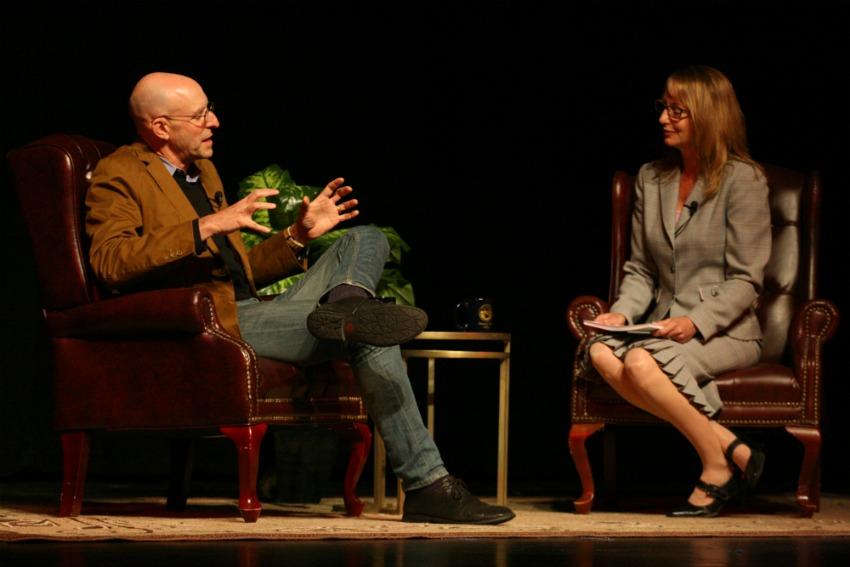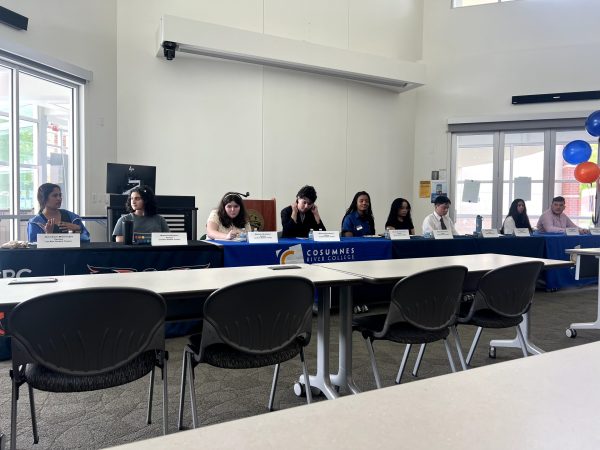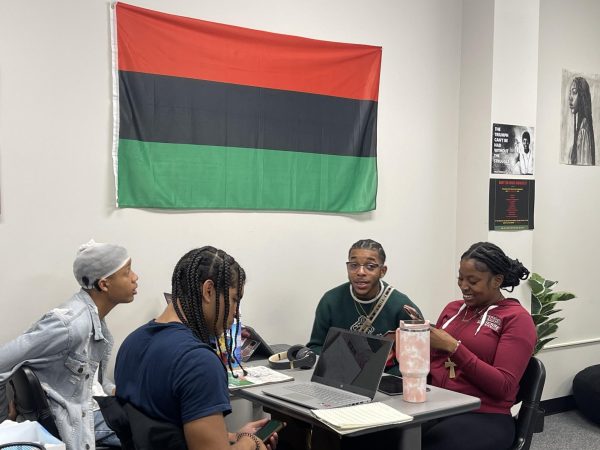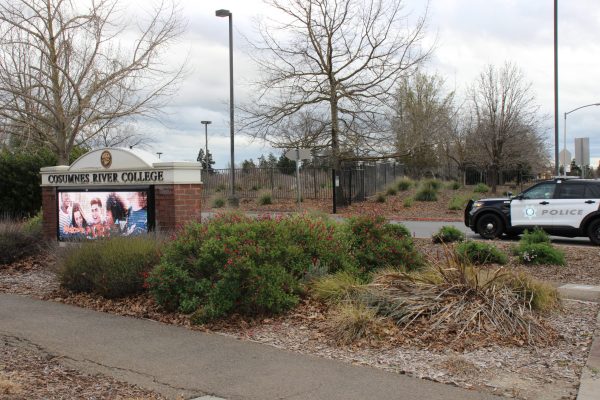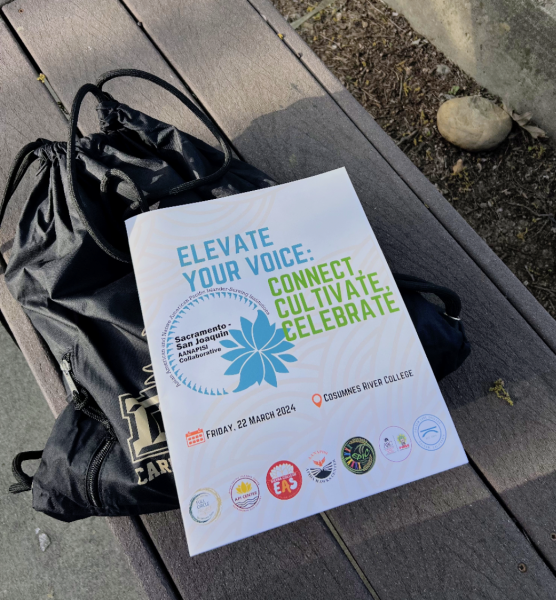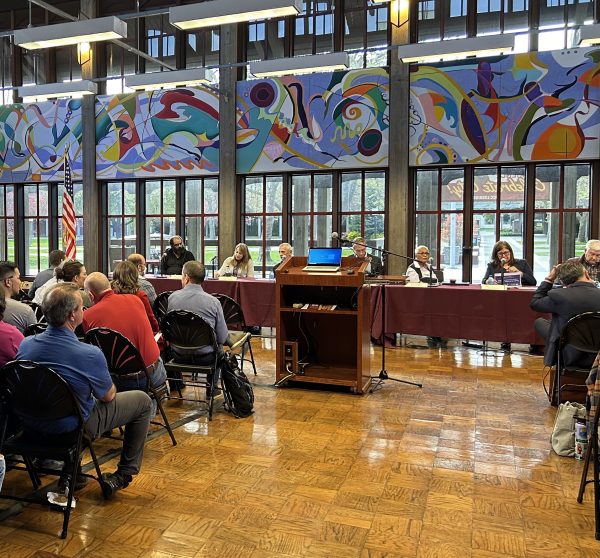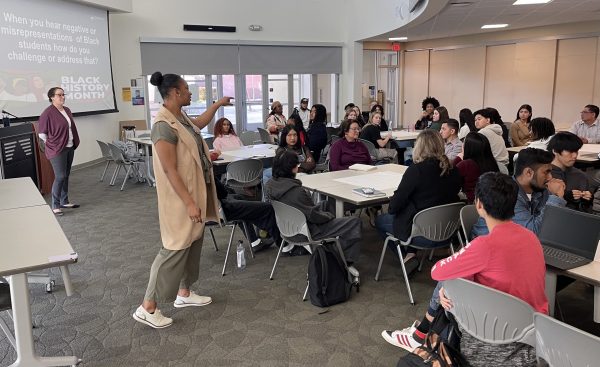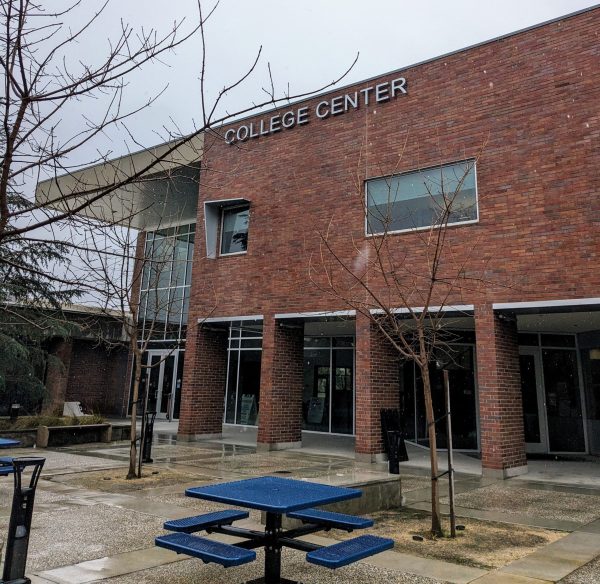OneBook author’s visit begins campus Earth Day celebration
Author Michael Pollan and Communication Professor discuss Pollan’s book “The Omnivore’s Dilemma” and food in general during the keynote event for Cosumnes River College’s Earth Day Celebration on April 24.
Seated in a leather arm chair with an area rug and potted plants adding to the atmosphere on the Recital Hall stage, award-winning author Michael Pollan answered questions from moderator and Cosumnes River College Communication Professor Georgine Hodgkinson as the first ever guest of the CRC Foundation’s Distinguished Speaker Series.
Pollan’s book “The Omnivore’s Dilemma” was chosen as the OneBook selection for 2013-2014 and his keynote discussion kicked off the campus Earth Day celebration, part of Earth Week for the campus, on April 24.
The OneBook Project, started in 2010, encourages the entire campus and neighboring community to read and discuss a common book during each academic year, according to the OneBook page on CRC’s website.
Cosumnes River College President Deborah Travis opened the event, welcoming both the attendees and the special guest.
“It really is a privilege to welcome Michael Pollan and all of you here today,” Travis said. “As we explore, debate and gain greater knowledge and understanding about sustainability, food, water and good health in celebration of Earth Day.”
Hodgkinson took the stage next in order to introduce the special guest.
“For the past year this work has informed campus activities, curriculum [and] it sparked exciting conversations across our academic community,” Hodgkinson said. “So, it is my great honor to introduce a man that has changed the way I see the food on my table, a man I most sincerely admire.”
Hodgkinson’s introductory remarks were met with thunderous applause in the Recital Hall as Michael Pollan took the stage.
Pollan’s book and much of the Earth Day events focused on better ways to eat, and the first portion of the moderated event reflected that focus, including Pollan’s own eating habits and views when he was younger.
“Like most Americans, I was pretty disconnected from where my food came from or what was in it or how it was made,” Pollan said. “If it tasted good that was all I asked.”
Pollan said that he was lucky enough to have a mother that made home-cooked meals for them as youths, but in his 20’s there were times where he would have a cheeseburger, fries and a beer everyday for lunch. Like many today, Pollan said he never really read labels on foods.
On any given day, one in three American children are eating at a fast food restaurant, Pollan said. When he was a child, Pollan said that eating such food was only once a month or so, just like sodas were not something that people had at home, and instead had them on special occasions.
“These foods are not necessarily evil,” Pollan said. “We’ve just taken something that was like a holiday and made it an everyday event.”
Pollan said he encourages people to find out where their food comes from, because the more you inform yourself about the production of processed foods, the more you will lose your taste for them.
Topics ranged from farming, sustainable eating, the decline of cooking in America, hunting, big industry farming, tracking and even feeding the hungry. Those that were unable to get into the packed Recital Hall were turned to the Black Box theater, which was the designated first overflow area.
A portion of Pollan’s presentation focused on the proclivity of many to say they don’t have time to cook and the reliance on fast food in our nation.
“I think a lot of us feel that cooking should be really complicated and time consuming, but people have cooked for most of human history. They’ve gotten it done,” Pollan said. “Part of your sense of busyness has been inculcated by food marketing. Keep an eye on the ads for food you see on TV, and they will flatter your sense of busyness.”
The food industry and commercial life in general wants to keep people busy doing other things, including watching TV, Pollan said. The author said that the amount of time spent cooking has declined to 26 minutes per day, which is half the amount of time that was spent on the same activity in the 1950s.
Pollan said that his family cooks 50 percent more than they need most nights, in order to create leftovers, which the author said are the key to eating sustainably.
While there was a debate between students of the communication department in the Library Forum about GMO’s right after Pollan’s presentation, that did not mean they were off limits in Pollan’s discussion.
Pollan said that much of the negative stigma around GMO’s comes from the secretive methods the government and others used in producing them. The writer also said that if Monsanto and other corporations had come out with genetically modified food that was healthier and a tastier alternative, people would have accepted it more.
Pollan’s discussion was simulcast to the Black Box theater as well as the second overflow area in the Library Forum, a stand-in for the Winn Center Community Room, which was originally the second overflow area until a broken projector led to a change. The speech was also broadcast to any computer on campus.
Hodgkinson brought up statistics that focus on over a billion people on the planet going hungry every day, to which Pollan said that there is no reason for such hunger when there are around 2600 to 3600 calories worth of food per person being grown every day. The author said much of the hunger comes from the food that is wasted in the production processes.
Pollan said 40 percent of the food is wasted on the fields, in the processing, at the supermarket and in our refrigerators. He also said that over half the grain grown is fed to animals so that they can then be slaughtered for food.
“You can grow plenty of food and people will still starve,” Pollan said.

